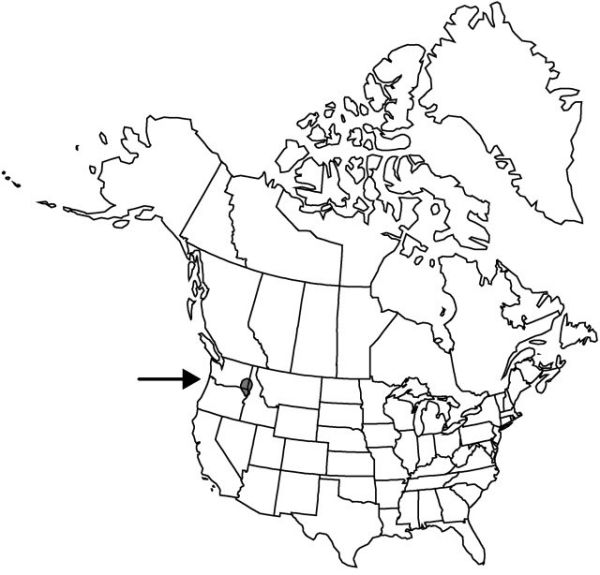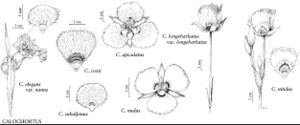Difference between revisions of "Calochortus nitidus"
Trans. Hort. Soc. London 7: 277, plate 9A. 1828.
FNA>Volume Importer |
imported>Volume Importer |
||
| Line 6: | Line 6: | ||
|place=7: 277, plate 9A. 1828 | |place=7: 277, plate 9A. 1828 | ||
|year=1828 | |year=1828 | ||
| + | }} | ||
| + | |special_status={{Treatment/ID/Special_status | ||
| + | |code=F | ||
| + | |label=Illustrated | ||
| + | }}{{Treatment/ID/Special_status | ||
| + | |code=E | ||
| + | |label=Endemic | ||
}} | }} | ||
|basionyms= | |basionyms= | ||
| Line 44: | Line 51: | ||
|publication title=Trans. Hort. Soc. London | |publication title=Trans. Hort. Soc. London | ||
|publication year=1828 | |publication year=1828 | ||
| − | |special status= | + | |special status=Illustrated;Endemic |
| − | |source xml=https:// | + | |source xml=https://bibilujan@bitbucket.org/aafc-mbb/fna-data-curation.git/src/bb6b7e3a7de7d3b7888a1ad48c7fd8f5c722d8d6/coarse_grained_fna_xml/V26/V26_172.xml |
|genus=Calochortus | |genus=Calochortus | ||
|species=Calochortus nitidus | |species=Calochortus nitidus | ||
Revision as of 23:15, 27 May 2020
Stems not branching, straight, 2–4 dm, proximal internodes elongate; bulblets rare. Leaves: basal usually persistent, 1–3 dm × 10–25 mm; blade flat, tapering toward both ends, becoming involute; cauline ca. halfway up stem. Inflorescences subumbellate, 1–4-flowered; bracts 2 or more, narrowly lanceolate to linear, long-attenuate, unequal, 2–10 cm. Flowers erect; perianth open, campanulate; sepals ovate to lanceolate, shorter than petals, glabrous, apex acuminate; petals lavender, with deep purple adaxial crescent distal to gland, obovate, cuneate, ± ciliate laterally, sparingly covered with long, flexuous hairs distal to gland; glands ± triangular-lunate, slightly depressed, bordered proximally by narrow, deeply fringed membrane, covered with short, thick hairs, hairs and membrane fringe densely covered with long papillae; filaments longer than anthers; anthers oblong, 6–10 mm, apex obtuse. Capsules erect, 3-winged, ellipsoid to nearly globular. Seeds light beige. 2n = 40.
Phenology: Flowering summer.
Habitat: Low meadows along creeks
Elevation: 700–900 m
Distribution

Idaho, Oreg., Wash.
Discussion
Selected References
None.
